Master of Arts in
Higher Education Leadership
The Higher Education Leadership program will help you develop the skills needed to serve in advanced academic or administrative position in a postsecondary institution. Lacking knowledge and qualifications frequently make these positions out of reach. As a leader, innovative thinking is a necessity if the vision and mission of institutions are going to be fulfilled. If you are passionate about quality Higher Education, with a desire to advance your career, this accelerated and affordable degree is for you.
Online Graduate Start Dates
September 30, 2025
Refine & Extend Your Calling as You Continue to Make an Eternal Impact
With Grace Christian University’s online master’s degrees, you can further your education no matter where you are. Our online programs are designed to help you become equipped for the Lord’s calling on your life, while working through your classes anytime, anywhere.
Grace’s online master’s degrees offer a high-quality level of education aiming to develop passionate servants of Jesus that emphasize the integration of character transformation, ministry experience, and biblical truth. No matter what track you choose, you’ll graduate with a deeper knowledge of God and His Word, prepared to make an eternal impact wherever you go.
Experience an Education with a biblical foundation
Develop Godly Friendships that will last a lifetime
Feel Confident and Prepared for your ministry career
Learn from instructors who really care
What to Expect
Excellence in Higher Education Leadership, Grounded in Faith
At Grace, our curriculum goes beyond conventional education, weaving biblical principles into every facet of learning. We aim to develop passionate servants of Jesus that emphasize the integration of character transformation, ministry experience, and biblical truth.
2025–26 Tuition Cost
An Affordable Higher Education Leadership Master’s Degree
Explore the pathway to an affordable yet exceptional Master of Arts in Higher Education Leadership. With a range of financial aid options and competitive tuition rates, we’re dedicated to ensuring that every student has the opportunity to excel in the pursuit of their calling without the burden of overwhelming student debt.
$520
2025-26 Master Degree Tuition Cost Per Credit Hour
$250
Master Degree Tuition Cost Per Credit Hour
Military Personnel (active duty, veterans, spouses, dependents 23 or under)
$0
Online Application Fee
(Wavied for Adults Students)
$150
Online Resource Fee per 3-Credit Course
(Covers all textbooks and other resources required for Grace Online students)
Career Paths
Higher Education Leadership Career Paths
Higher Education students will be equipped with a versatile skill set that opens doors to a variety of career opportunities. Whether you’re drawn to academics, athletics, career services or beyond, the possibilities are vast.
Here are just a few examples of the diverse paths our alumni have pursued after completing their studies:
- Academic Advisor
- Assistant Registrar
- Athletic Director
- Dean of Admissions
- Director of Academic Advising
- Director of Career Services
- Director of Student Financial Aid
- Provost
- Vice President of Enrollment Management
- Student Activities Officer
- Student Admissions Counselor
- Student Career Counselor
- Student Conduct Coordinator
- Student Financial Aid Counselor
- Student Housing/Residence Life Officer
Higher Education Leadership Faculty
Our dedicated faculty members are the heart of our Higher Education program, embodying qualities of care, mentorship, and a steadfast commitment to Christ-centered education. Each member brings a wealth of professional expertise, ensuring that our students receive top-notch instruction grounded in real-world experience.
Benefits of Our Online Master Programs
Students in the Online Master’s Degree Programs:
- Attend classes on a flexible schedule that allows for work and family responsibilities
- Expand career and ministry opportunities with a degree that opens doors
- Obtain an affordable, high-quality education
- Gain collaboration skills through working with classmates and professors
- Achieve an educational goal
20
Months*
33
Credit Hours
6
Week Courses
Course Descriptions
Higher Education Leadership Courses
Our courses are designed to provide students with the knowledge, skills, and perspectives necessary for successful careers in various roles within higher education institutions, such as administration, faculty development, student affairs, and policy development. These programs equip graduates with the tools to navigate the complexities of the higher education landscape and contribute to its advancement.
The Master of Arts in Higher Education Leadership (33 credits) consists of courses relating to foundations of leadership theory and practice, educational assessment and curriculum, educational technology, leading with cultural intelligence, and student support services and retention strategies.
Required Texts
GEN 501 – Graduate Writing and Research
- Burns, J. S., Shoup, J. R., & Simmons Jr., D. C. (2014). Organizational leadership: Foundations and practices for Christians. InterVarsity Press. 978-0830840502 (accessible via Perlego)
- Neumann, J. W. (2016). A professor’s guide to writing essays: The no-nonsense plan for better writing (2nd ed.). Edinburg, TX: Self-Published. 978-0692822524
- Williams, V. K. (2016). I’m not a writer…I’m just in graduate school: A guide to writing critically, clearly and coherently. Tampa, FL: Chrysalis Consulting. 978-1533392916
BUS 515 – Financial Stewardship
All resources for this course are provided directly in Blackboard, no required texts will be fulfilled.
EDL 565 – Learning Theory and Teaching Strategies
- Johnson, A. P. (2019). Essential learning theories: Application to authentic teaching situations. Rowman & Littlefield. 978-1475852707
EDL 570 – Leadership in Educational Technology
- Kim, J. & Maloney, E. (2020). Learning innovation and the future of higher education. Johns Hopkins University Press. (accessible through Grace’s Library via BML Ebook collection in EBSCO Host)
EDL 575 – Curriculum Development and Assessment
- Kuh, G. D., & Ikenberry, S. O., & Jankowski, N. A., & Cain, T. R, & Ewell, P. T., & Hutchings, P., & Kinzie, J. (2015). Using evidence of student learning to improve higher education. (1st ed.). Jossey-Bass. 111890339 (accessible via Perlego)
EDL 580 – Contemporary Issues and Innovation in Higher Education
- Gasman, M., & Samayoa A. C. (Eds.) (2019). Contemporary issues in higher education: Core concepts in higher education. Routledge, Taylor & Francis Group. 978-1138344600
EDL 585 – Student Support Services and Retention Strategies
- Moxley, D., Najor-Durack, A., Dumbrigue, C. (2013). Keeping students in higher education. Routledge Taylor and Francis Group. 978-0749430887
LEA 505 – Organizational Ethics
- Johnson, C.E. (2021). Meeting the ethical challenges of leadership: Casting light or shadow. (7th ed.). Sage. 978-1544351643
LEA 540 – Organizational Behavior
- Burns, John S., Shoup, John R., and Simmons, Donald C. (2014). Organizational leadership: Foundations and practices for Christians. IVP Academic. 9780830840502 (accessible via Perlego)
- Kotter, J. (2012). Leading change. Harvard Business Review Press. 9781422186435
LEA 545 – Leading with Cultural Intelligence
- Livermore, D. (2015). Leading with cultural Intelligence. AMACOM Publishing. 9780814449172 (accessible via Perlego)
- Elmer, D. (2002). Cross-Cultural connections: Stepping out and fitting in around the world. InterVarsity Press. 9780830823093 (accessible via Perlego)
CAP 595 – Graduate Studies Capstone
Blanchard, K., Hodges. P., & Hendry, P. (2016). Lead like Jesus revisited: Lessons from the greatest role model of all time. Thomas Nelson. 978-0718077259
Master of Arts in Higher Education Leadership
Our courses are designed to provide students with the knowledge, skills, and perspectives necessary for successful careers in various roles within higher education institutions, such as administration, faculty development, student affairs, and policy development. These programs equip graduates with the tools to navigate the complexities of the higher education landscape and contribute to its advancement.
Graduate Writing and Research
GEN 501LDesigned to give students the skills they need to complete successful written projects and research in graduate-level courses within the context of a biblical worldview. Students who pass this course will demonstrate proficiency in critical thinking, expressed through solid research and clear writing, which serves as the foundation for further studies in the University’s graduate programs. Includes research tools and methods for scholarly research. (Available only to students in the 4+1 program. The successful completion of GEN 501L is considered a prerequisite for all other graduate courses.) |
3Credit Hours |
Organizational Ethics
LEA 505An analysis of the foundation of ethical behavior in business, including an introduction to social graces and the importance of professional image. Emphasis is placed on a comparison between Judeo-Christian and secular ethical paradigms, as well as the social responsibility of organizations to contribute to the common good. (Available only to students in the 4+1 program.) |
3Credit Hours |
Financial Stewardship
BUS 515Introduces the principles of financial management. Students will review basic concepts of financial management, financial analysis and control, capital investment decisions, cost of capital, sources of long-term funds and cash management principles, accounting, review of basic organizational financial statements, ratio analysis, debt and equity securities, security valuation, and Time Value of Money. It is a study of the fundamentals of corporate finance as they relate to non- financial managers. (Available only to students in the 4+1 program.) |
3Credit Hours |
Organizational Behavior
LEA 540Organizational Behavior is the study of the behavior of individuals, teams, and organizations, within for profit and nonprofit arenas, which is based on current management and leadership theory. Emphasis is given to understanding, predicting, motivating, and changing work-related behaviors in organizations, as well as encouraging effective behaviors that help the individual, team, and the organization to flourish. Key topics include: managerial and leadership careers related to students’ work and calling, decision making, organizational change, leading and mentoring teams, conflict and negotiation, and cultural intelligence. (Available only to students in the 4+1 program.) |
3Credit Hours |
Leading with Cultural Intelligence
LEA 545Cultural Intelligence (CQ) is the capability to function effectively in a variety of cultural contexts. Students will examine literature and perspectives from the fields of anthropology, sociology, and organizational leadership as well as study cultural engagement in light of the biblical narrative. (Available only to students in the 4+1 program.) |
3Credit Hours |
Learning Theory and Teaching Strategies
EDL 565Examines scholarly research on learning theories including cognitive, behaviorism, constructivism, humanism, and connectivism. Topics will include pedagogy and andragogy, multiple intelligences, differentiated instruction, learner-centeredness and teacher-centeredness. A variety of teaching methodologies will be explored. (Available only to students in the 4+1 program.) |
3Credit Hours |
Leadership in Educational Technology
EDL 570Examines the roles of leadership in community, leadership in administration and leadership in institutions from a Christian worldview. This course will provide educators with both the theoretical and the practical considerations for evaluating, planning and implementing technology. This course will form a foundation from which educators will provide leadership and become agents for realizing the powerful potential of technology in their institutions. (Available only to students in the 4+1 program.) |
3Credit Hours |
Curriculum Development and Assessment
EDL 575Explores curriculum development approaches for online, face-to-face, and hybrid learning modalities. Topics will include writing measurable learning outcomes, developing formative and summative assessments, data-based decision making, closing the loop, and reporting assessment data in meaningful and useful formats. (Available only to students in the 4+1 program.) |
3Credit Hours |
Contemporary Issues and Innovation in Higher Education
EDL 580Examines current trends in higher education. Topics will include accreditation, policy, financial aid, decreasing enrollment, limited resources, diversity and equity, accessibility, and social and political changes impacting higher education. Students will apply innovative strategies to address contemporary higher education issues faced by students, faculty, staff, and administration. (Available only to students in the 4+1 program.) |
3Credit Hours |
Student Support Services and Retention Strategies
EDL 585Examines strategies to optimize student outcomes to meet students’ academic, social, emotional, physical and spiritual needs. Topics include motivation, academic support, student retention, campus life, academic advising, and career counseling. (Available only to students in the 4+1 program.) |
3Credit Hours |
Choose One
Graduate Capstone
CAP 595The Graduate Capstone is a six-week course with assignments that include discussions and reflections on the scope of the student’s discipline, reviews of recent literature on leadership, and the creation of a final essay of 10 pages in which students write about guiding principles such as life purpose, core values, goals, and vision, as well as identifying key principles of leadership gleaned throughout their courses of study they plan to apply in the future. Prerequisite: Completion of all degree requirements with a minimum cumulative GPA of 3.00. |
3Credit Hours |
Graduate Capstone Experience
CAP 596The Graduate Capstone Experience is a six-week course that is built on the foundation of a hands- on experience in the student’s chosen discipline. The experience will reflect the scope of the degree studies, reviews of recent literature on the topic, and will demonstrate an area of the student’s specific passion in the discipline. The experience will be described in a final essay of 20 pages in which the student describes the experience in detail and how the understanding gained through the experience will be applied in future work and ministry. Prerequisite: Completion of all degree requirements with a minimum cumulative GPA of 3.00 and approval of the Provost or designee. |
3Credit Hours |
Graduate Capstone Thesis
CAP 597The Capstone Thesis is a 12-week course that highlights the student’s independent scholarship in investigating and developing a chosen topic, integrating a biblical worldview and theoretical base with a comprehensive literature review. Students will work directly with a faculty thesis advisor to produce a 40 – 80 page scholarly work. Prerequisite: Completion of all degree requirements with a minimum cumulative GPA of 3.00 and approval of the Provost or designee. |
3Credit Hours |
Testimonials
What Our Students Are Saying
We believe education is more than just academics. Check out firsthand accounts from students like you who have been impacted by our vibrant community, transformative education, and unwavering commitment to faith.




Frequently Asked Questions
Who is the Master's Program for?
Anyone who has completed a Bachelor's degree and is seeking quality Christian Higher Education. We offer tuition discounts for military personnel, alumni scholarships, and payment plans for cash paying students. Our program is excellent for those receiving tuition reimbursement from an employer as well as anyone seeking to utilize Federal Financial Aid.
What is the Grace Christian Difference?
Academic Rigor
The program will teach and develop graduate-level research, writing, critical thinking, leadership and communication skills. Beginning with the Program Seminar, the program is designed to acclimate students to graduate-level work and prepare them for the kind of reading, writing, and thinking skills they will need for the remainder of the program.
Student-Centered
The application of constructivist learning theory puts the responsibility of learning in the hands of the students. Whenever possible, students will be allowed to choose what they will learn, how they will learn, and how they will assess their learning in terms of their ministry and professional goals.
Best Practices
As a fully online program, Graduate Studies at Grace Christian University adheres to the best practices of online education, including, but not limited to: online presence, creating a supportive online community, a variety of individual, small group, and large group learning experiences, and clear communication in the online environment.
What Can I Expect from the Professors of this Program?
Your professors have first hand knowledge working in their areas of instruction, along with advanced degrees and higher education experience. They are eager not just to instruct, but to guide you on your faith journey and pray for you throughout your time here. Their desire is to help you succeed and equip you for where God has called you.
What are the Benefits of the Program?
Students in the Online Master's programs will be able to:
- Complete a Master's degree in as few as 20 months
- Attend class asynchronously online and minimize interference from work schedules and family responsibilities
- Improve writing skills through our university Writing Center at our virtual Academic Center for Excellence.
- Enhance virtual presentation and technology skills to maximize ministry effectiveness and/or leadership skills
- Meet in a collaborative format and benefit from the varied experiences and ideas of classmates
- Obtain a degree that opens a wide range of opportunities, including pursuing doctoral studies
- Attend small virtual classes with the same students, developing teamwork skills and mutual support
- Receive individualized instruction and specific attention
- Gain satisfaction by fulfilling an educational goal
What Flexibility Does the Master’s Program Offer?
One course at a time, on your own time, in as little as 20 months. Students may enroll full-time or part-time and complete their coursework throughout the week at a time of day that is convenient for them.
Why Should I Study Online at Grace?
Advance your career from the comfort of your own home.
Our online master’s degrees are designed for busy professionals who desire to advance their careers. Through our flexible classes, our professors will encourage and mentor you as you expand your current pursuits.
Experience a caring community.
Connect with professors and students who will come alongside you as you pursue higher education and growth in Christ. At Grace, we’re passionate about equipping and supporting you to serve the Lord and others in all that God has called you to do.
Strengthen your biblical foundation.
At Grace Christian University, the Word of God is taught, valued, and celebrated. Deepen your knowledge of God’s Word as you receive an education grounded in objective Biblical truth.
The Grace Experience.
As closely as possible, the Graduate Studies program will reproduce the experience of undergraduate students (On Campus and Online) in an authentic Grace Christian University experience, expressing the ethos, core values, and historic mission of the University. This includes the University’s commitment to being a Bible-centered institution, committed to our historic Grace theological position, which values transformative relationships and service to church and society.
What Sets Our Master's Programs Apart?
Our Enrollment Advisors are there for you.
One-on-one coaching through the admissions process and the first class with your assigned Enrollment Advisor. Your advisor will want to know:
- Your passion
- Your path and goals
- Life circumstances that could help or hinder your success
- How can they pray for and with you
Your advisor will take this information seriously and provide tailored care as you get started with your degree.
We Prioritize You
Your goals and giftings are prioritized so they drive your success; this is opposed to a one-size fits all mentality & communication.
We take care of all class registration and your personalized education plan is created when you begin your program, so you are able to see all courses required until your graduate date.
One Class at a Time
No required log-in time (you log in throughout the week when it works best for your schedule!)
Students finish their online degrees in the same period as if they were attending an on-campus program.
Our Professors Care
Staff and faculty care about each student's eternal impact, which influences the care and resources we provide. Professors care and are easily accessible.
Low professor-to-student ratio:
- Online Undergraduate - 9.3 students per course section
- Online Graduate - 7 students per course section
The Bible is Central
All classes are taught from a biblical foundation, regardless of subject, with weekly devotions.
Low Cost Quality Education
Low tuition for a private Christian education.
Take the Next Step
Your Calling to the World Awaits
Join the Grace community and embark on a transformative journey of faith, learning, and personal growth as you pursue your calling in the higher education leadership field.









